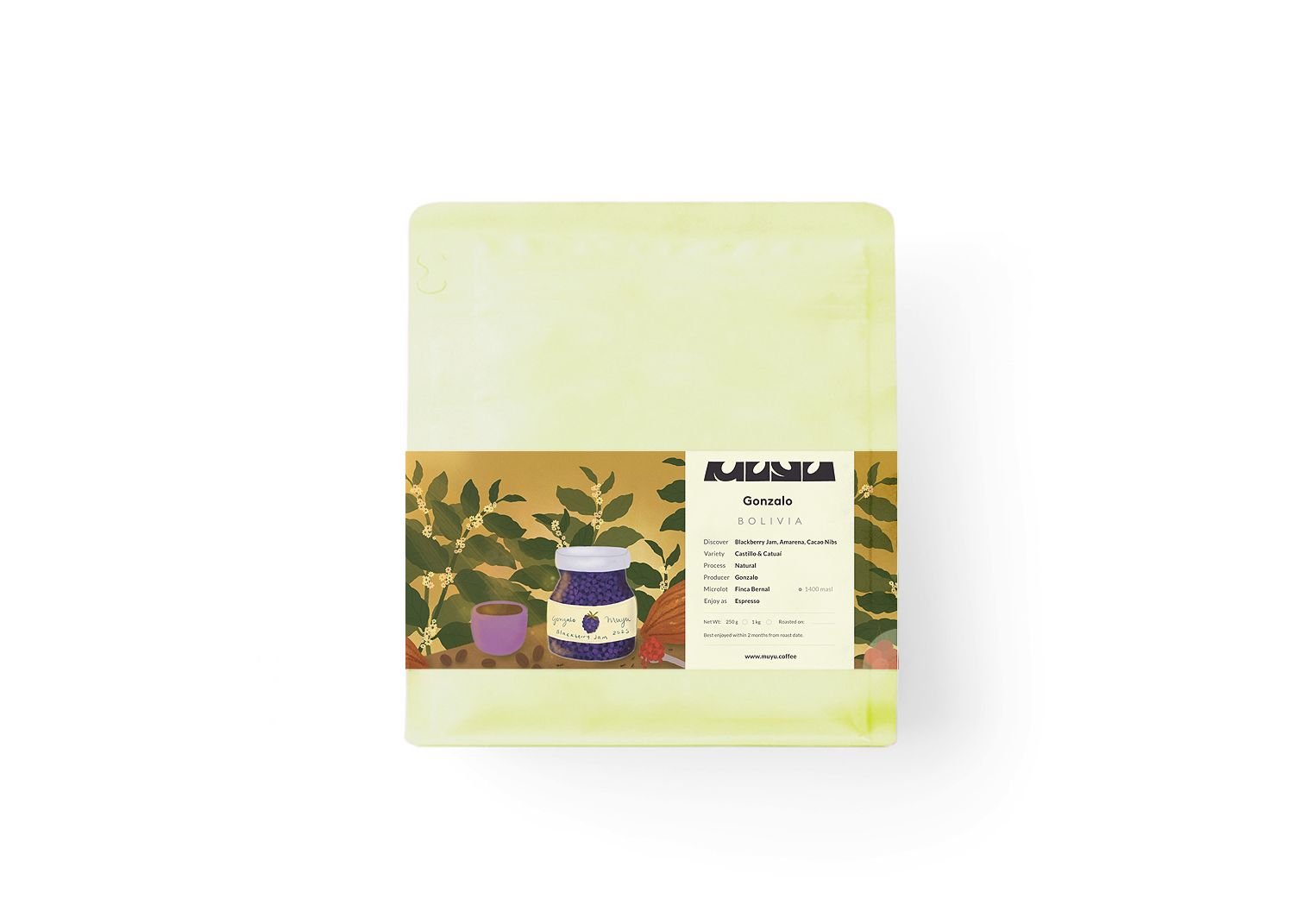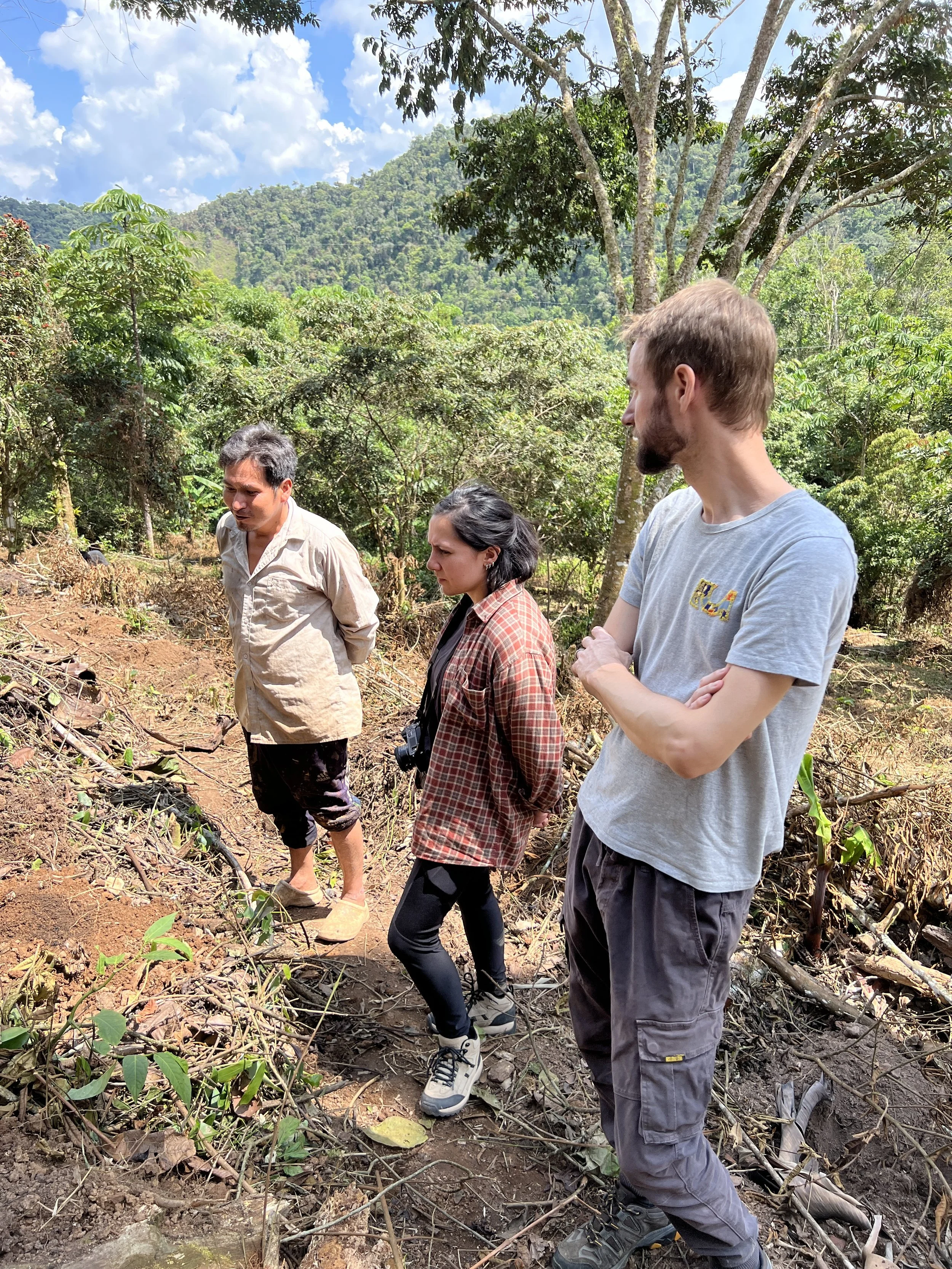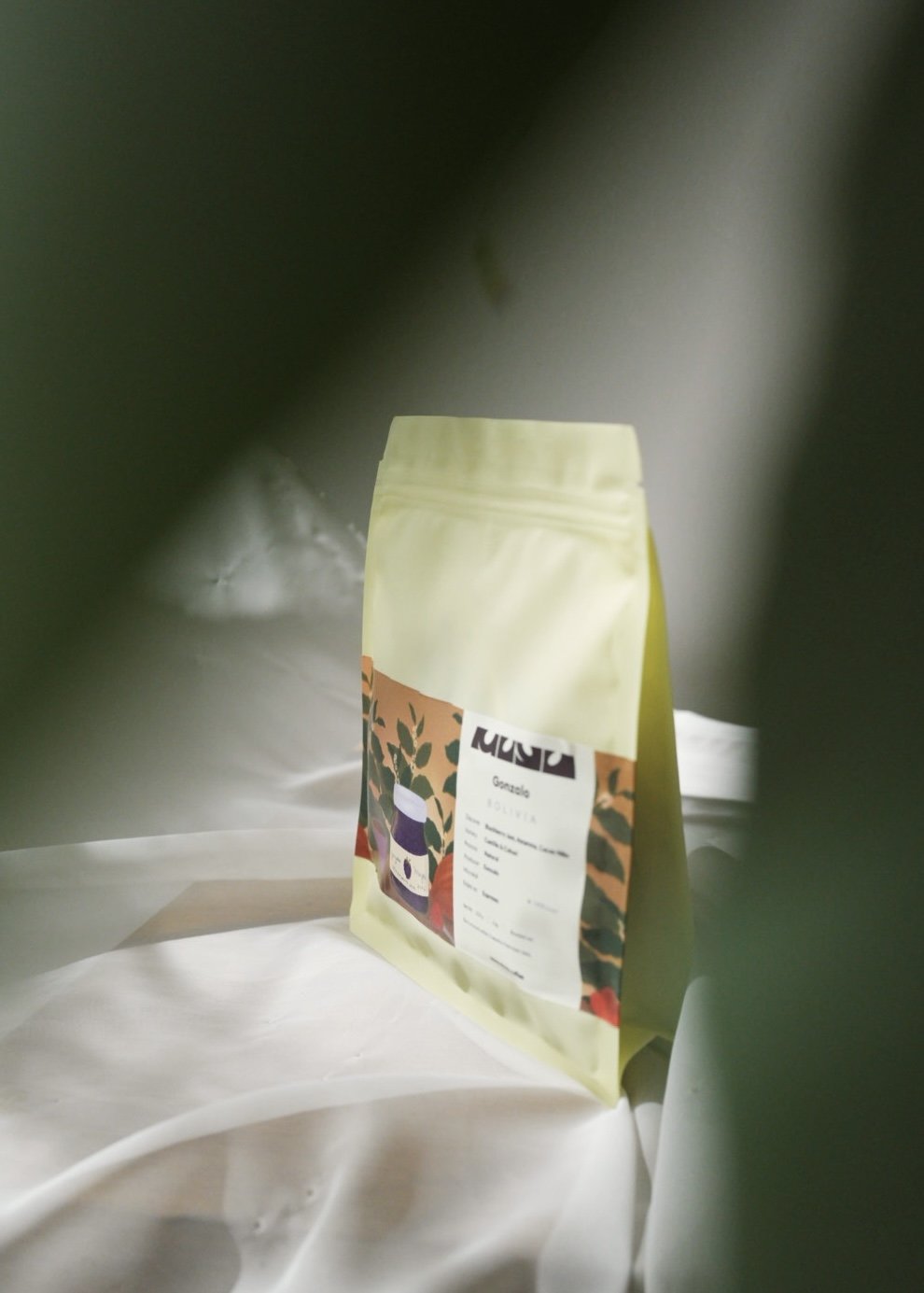-
With a standard 9 bar espresso machines, don’t go crazy. This is an easily dialed in bean: 16-18 grams in, 30-32 grams out in 24-28 seconds, so slightly shorter than your standard 2:1 ratio to get that extra concentration and thickness while keeping it sweet with a lower brew temp set at around 90-91 degrees (slightly higher if your machine has a more drastic fall in temperature while pulling shots).
Living in a town with harder water? Make sure to filter it down to under 80 ppm for best results when brewing coffee.
-
Variety: Iapar
Post harvest processing: Natural
Producer: Finca Isabel
Microlot: Rosario
Elevation: 1750 masl
Location: Loayza, Caranavi Province, BoliviaNet weight: 250 grams or 1 Kg whole beans
Roasted for: Espresso -
We have a very special relationship with this coffee, as it reads like the tale of the ugly duckling that became a swan. The very small plot were the few Iapar trees grow is located on the lower part of the Rosario microlot, and was already planted before Gabriela and Fernando bought Finca Isabel. As they specialize in very high quality varieties such as Geisha, Bourbon and Caturra, the Iapar got very little attention and got sold as whole cherries to local agents for a few cents. When we were looking for new options for espresso beans, we did a little bit of research on this cultivar that we never heard about, and were intrigued of what we could get out of it. So, five years ago we took a leap of faith and asked Gabriela if she could process a small batch of this coffee. The natural process that was applied got us a very nice espresso, balanced, thick, velvety body, nice heavy winey fruitiness mixed with dark chocolate. The results were so encouraging, that we convinced Gabriela and Fernando to keep the small plot of Iapar, as they were thinking of replacing it with another variety. Last year, we decided to process this variety in two ways, a Honey and an Anaerobic Natural, in order to get a better understanding of the different cup profiles that can be achieved with this sturdy cultivar. Although both were nice coffees, with the recent harvest, we went back to a traditional natural process. After cupping and tasting the espresso we’re getting out of this combination of cultivar and process, we come to the conclusion that it makes for heavier bodied espresso, showcasing a more traditional, low acidity cup profile that is really enjoyable for people that are pulled towards this type of experience.
We find that this coffee exemplifies our approach to beans as roasters: we always look for highest quality, but we’re not afraid of looking for it where others don’t see it. We’re keen to find the widest possible range in cup profiles, so that we’re able to speak to virtually any palate, showcasing our craft on different varieties. Farmers will never have issues selling their top scoring beans, where we as roasters can really have an impact, is in elevating those who seem to pass under the radar, unseen, making them desirable. In specialty coffee we don’t necessarily need a higher ceiling, we need to raise the floor. That’s what impacts smallholder farmers bottom line.
-
Finca Isabel is located in the community of Loayza at an average elevation of 1750 masl, about one hour from Caranavi, Bolivia and is run by Fernando and Gabriela. Fernando comes from a local coffee producing family but studied agronomy at renowned Universities in Costa Rica and Honduras, after which he perfected his craft at Hacienda La Esmeralda in Panama where he met Gabriela, who is meticulously in charge of post harvest processing. The results are evident as they run their finca extremely quality focused and with some of the most innovative agroforestry techniques we have seen in Bolivia. The symbiosis between his coffee plants and its surroundings is eye opening and big birds can freely roam their microlots, even stealing some of the sweetest coffee cherries before harvest. This doesn’t bother them, as the biodiversity of the spot clearly helps the high quality of their coffees.
-
Sourcing directly at origin from small farmers, we are fully aware of the hard work that goes into the quality product we buy and the challenges their families face to earn their fragile livelihood. In this regard, coffee producing communities in Bolivia face additional challenges, due to the lack of infrastructure, financial support and difficult access to international freight routes. To fairly balance the relationship between roaster and producer we are price takers and as part of our long term commitment to a financially and environmentally sustainable coffee production in Bolivia, we factor these realities into the pricing.
For this 80Kg batch of specialty grade coffee, Fernando and Gabriela received 11,01 USD/Kg.















